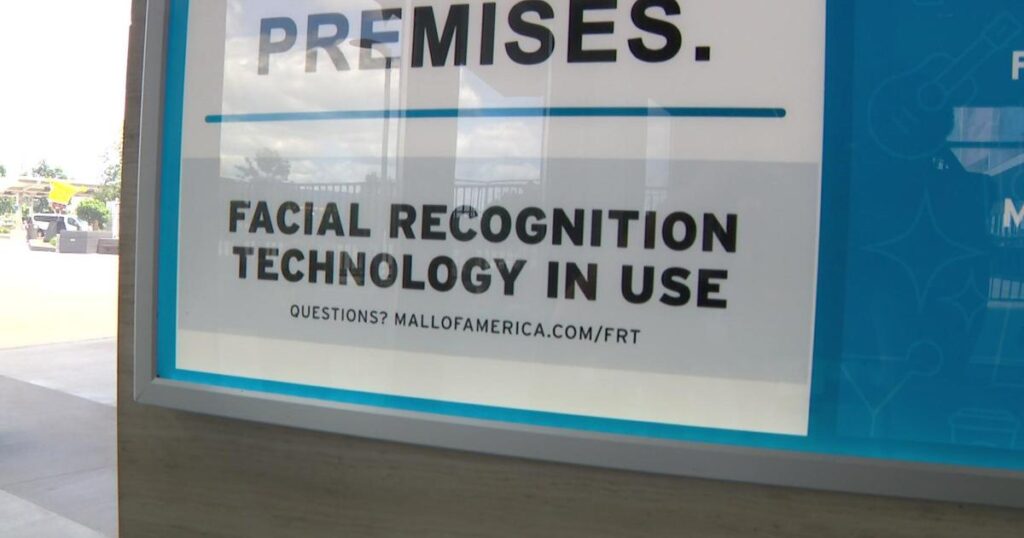BLOOMINGTON, Minn. — New facial recognition software recently installed at the Mall of America is raising concerns about privacy and data retention, drawing concerns from two bipartisan state lawmakers who vow to push for regulations in the next legislative session.
The mall, one of the largest in the country, is using the technology to screen for security threats by taking a picture of someone’s face and matching it against a database of high-value individuals, such as those flagged by police or banned from the premises. This comes after several shootings at the mall in recent years, including one that left a 19-year-old man dead in 2022.
The software can also be used to find people who may be missing or at risk, though a mall spokesman said the mall does not identify or store facial data of people who are not suspects.
Republican Sen. Eric Lucero of St. Michael, who works in cybersecurity, said he understands the intent behind the move to improve security but remains skeptical.
He and Democratic Sen. Omar Fateh of Minneapolis issued a joint statement following news of the technology’s introduction, sharing concerns about privacy and data retention.
In an interview with WCCO, Lucero suggested the state legislature temporarily ban the technology until more safeguards are put in place. He has filed a number of bills addressing artificial intelligence and emerging technologies, including co-sponsoring new legislation to ban “deep fakes” that could be used to influence elections.
WCCO
“Regulations need to be in place so that those considering deploying technologies like facial recognition understand their limitations and address data privacy issues and concerns,” Lucero said. “The law has not kept up with the technology. Rather than trying to put in place regulations, guardrails and controls after the fact, it would be absolutely reasonable to pause the deployment of facial recognition technology until those controls are in place.”
A mall spokesman said in a statement that when a potential suspect match is flagged, the mall doesn’t rely solely on facial recognition software — up to three people verify it’s the right person.
“Mall of America understands the importance of balancing security and privacy and believes that the limited use of facial recognition technology strikes the right balance. We take the safety of our guests, tenants and team members very seriously,” a spokesperson said in an email. “This best-in-class system, along with the integration of this technology and procedural changes, will further enhance security at Mall of America.”
Dr Manjeet Rege, director of the Centre for Applied Artificial Intelligence at the University of St Thomas, said he had no concerns about the mall’s use of the technology, citing a statement from the mall that it would not store data on people seen on camera, but would instead cross-reference live footage against an existing database of “suspects”.
Facial Recognition Technology WCCO
He noted that facial recognition is not new — it’s used at airports, to unlock your phone and to identify your friends when you upload photos to Facebook — but he said the technology has advanced significantly, with some algorithms now nearly 100% accurate.
He says it would be a concern if the videos had been stored without the consent of mall visitors, but he believes this is an example of using AI for good.
“There are limits to human security, so it’s crucial that we deploy technology for the safety of everyone,” Legge said. “In that respect, this is a very good step.”
Fateh vowed in a statement to address data privacy and civil liberties concerns “as soon as possible” when lawmakers return to St. Paul. The next legislative session begins in January.
“It is still unclear how that data will be stored, distributed and protected from data leaks. Mall of America is our state’s major public facility and we should not take this dramatic new step without explaining to our residents how this will work and why such an invasion of privacy and violation of their civil liberties is necessary,” Fateh said.
Caroline Cummings

